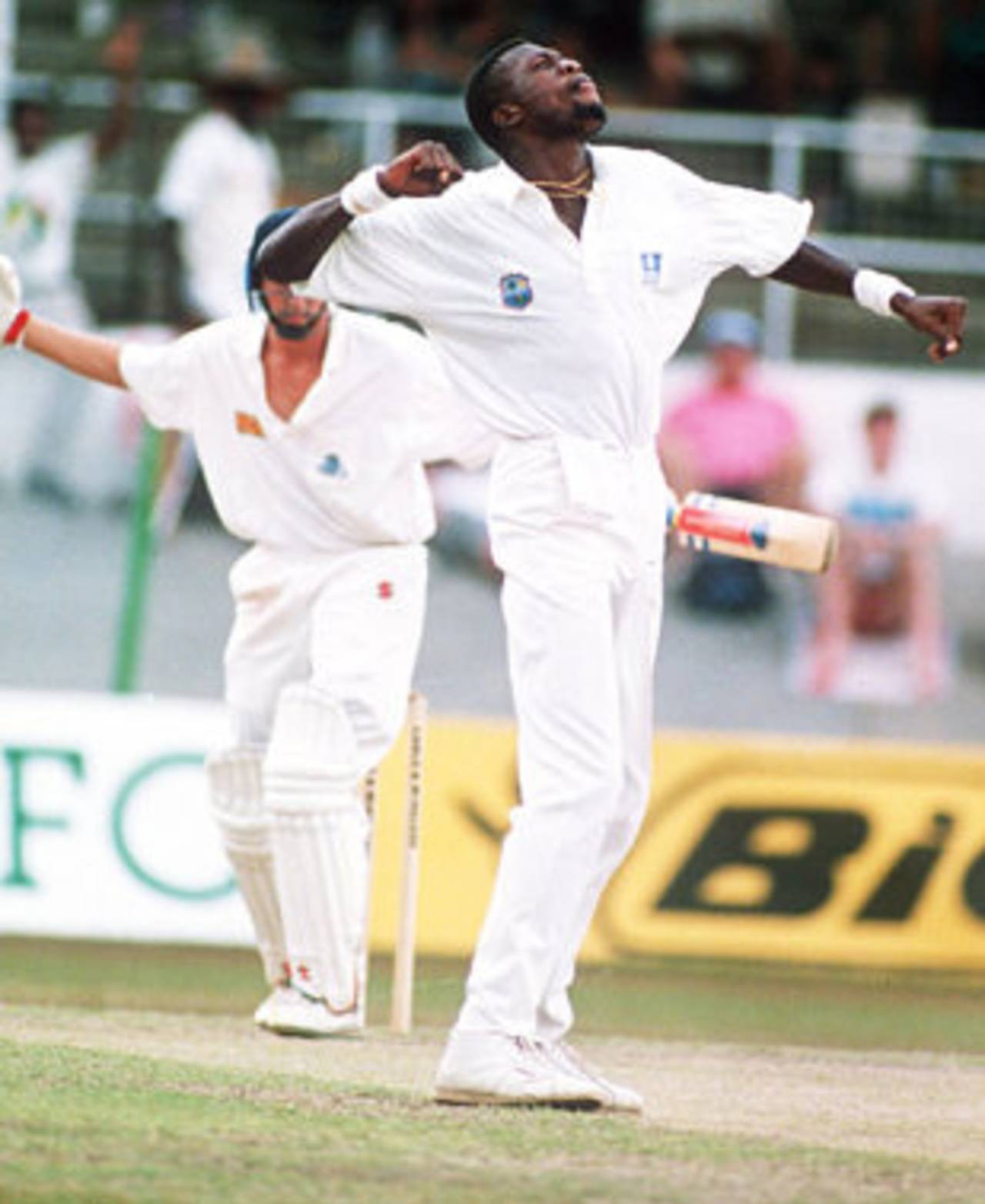Athers falls to Ambrose
West Indies had a small total to defend. They also had Ambi
BC Pires
Jun 21, 2009, 2:55 AM

Ambrose lets his war cry ring out at the Queen's Park Oval • Getty Images
Port-of-Spain, 30 March 1994
West Indies were defending a paltry 193 runs with three sessions to play on the last day. England had a point to prove and their resolve appeared strong. In the press box, English cricket writer and erstwhile Somerset captain Peter Roebuck said, "This ought to be England's game". I nodded.
And then Richie Richardson handed Curtly Ambrose the ball. These were the days when West Indian crowds still understood and loved Test cricket, even preferred it to the one-day game, and the Oval went absolutely silent as the ground focused on Ambi's long, loping run-up. With every breath held, every pair of eyes checked to see if Ambrose's back foot fell behind the line, if the ball pitched between wicket and wicket, at what length - it was the last point of "good" before "full" - and we all watched the ball as it skidded, at an incredible pace, into the England captain's pad with a thud heard plainly before the cries went up, first from the fielders, appealing, and then from the crowd, cheering. The ball was so fast, so deadly, the crowd did not need the umpire's finger to begin celebrating raucously.
I turned to Roebuck and said, "I think I have to watch this in the ground." It's not considered polite to scream in the press box.
England were all out for 46, still one run fewer than West Indies' lowest score against them, and the seven extras Ambrose and Courtney Walsh allowed in 19.1 overs outscored every English batsman bar Alec Stewart.
Anyone present at that ground could tell you that the English defeat was secured not with the last ball but with the first. If that was not a magic moment, brother, the word "magic" may as well be stricken from the dictionary.
This article was first published in the print version of Cricinfo Magazine